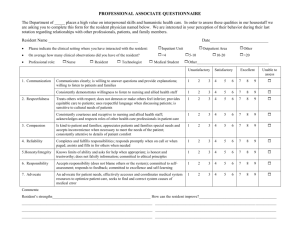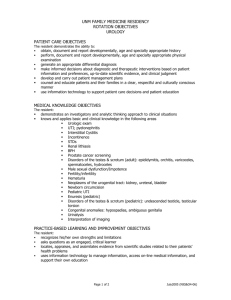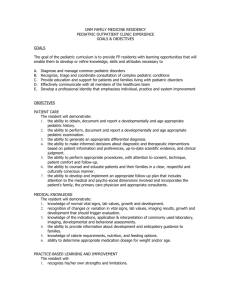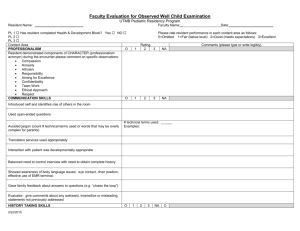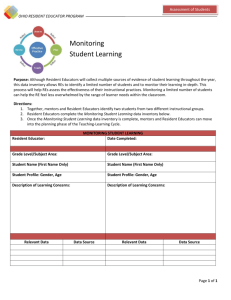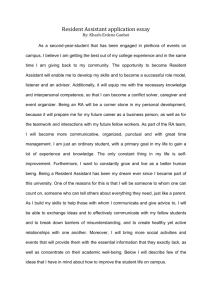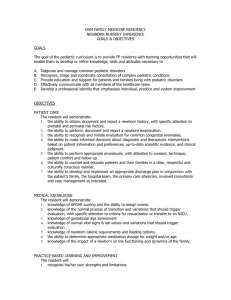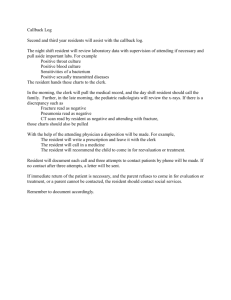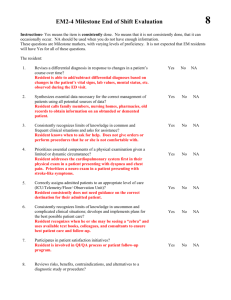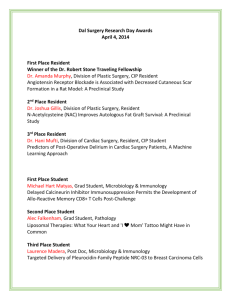Goals and Objectives for R3 Adolescent and Pediatric Medicine
advertisement
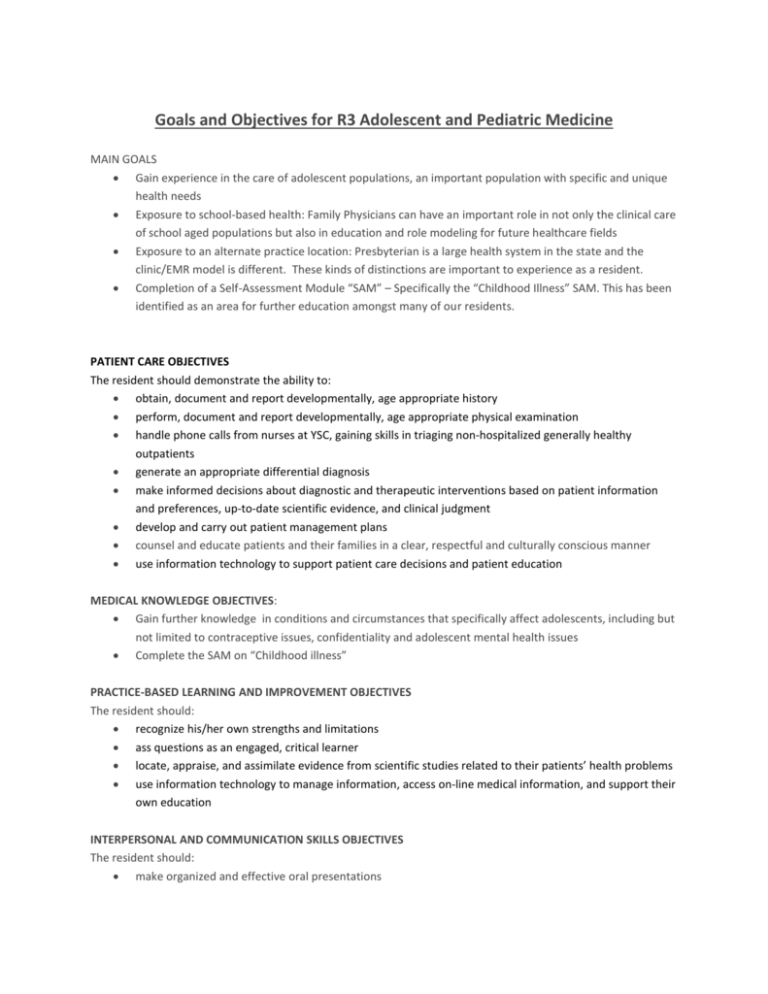
Goals and Objectives for R3 Adolescent and Pediatric Medicine MAIN GOALS Gain experience in the care of adolescent populations, an important population with specific and unique health needs Exposure to school-based health: Family Physicians can have an important role in not only the clinical care of school aged populations but also in education and role modeling for future healthcare fields Exposure to an alternate practice location: Presbyterian is a large health system in the state and the clinic/EMR model is different. These kinds of distinctions are important to experience as a resident. Completion of a Self-Assessment Module “SAM” – Specifically the “Childhood Illness” SAM. This has been identified as an area for further education amongst many of our residents. PATIENT CARE OBJECTIVES The resident should demonstrate the ability to: obtain, document and report developmentally, age appropriate history perform, document and report developmentally, age appropriate physical examination handle phone calls from nurses at YSC, gaining skills in triaging non-hospitalized generally healthy outpatients generate an appropriate differential diagnosis make informed decisions about diagnostic and therapeutic interventions based on patient information and preferences, up-to-date scientific evidence, and clinical judgment develop and carry out patient management plans counsel and educate patients and their families in a clear, respectful and culturally conscious manner use information technology to support patient care decisions and patient education MEDICAL KNOWLEDGE OBJECTIVES: Gain further knowledge in conditions and circumstances that specifically affect adolescents, including but not limited to contraceptive issues, confidentiality and adolescent mental health issues Complete the SAM on “Childhood illness” PRACTICE-BASED LEARNING AND IMPROVEMENT OBJECTIVES The resident should: recognize his/her own strengths and limitations ass questions as an engaged, critical learner locate, appraise, and assimilate evidence from scientific studies related to their patients’ health problems use information technology to manage information, access on-line medical information, and support their own education INTERPERSONAL AND COMMUNICATION SKILLS OBJECTIVES The resident should: make organized and effective oral presentations elicit and provide information using effective listening, nonverbal, explanatory, questioning, and writing skills communicate with the patient, family and members of the healthcare team in a timely, developmentally and culturally appropriate manner work effectively and respectfully with others as a member or leader of a health care team or other professional group PROFESSIONALISM OBJECTIVES The resident should: accept responsibility for patient care never misrepresent patient care information consistently perform in a punctual, reliable and collegial manner demonstrate dress, hygiene and manner of speech that consistently reflect appropriate standards demonstrate a commitment to excellence and on-going professional development SYSTEMS-BASED PRACTICE OBJECTIVES The resident should: practice cost-effective health care and resource allocation that does not compromise quality of care advocate for quality patient care and assist patients in dealing with system complexities to minimize discomfort or confusion
